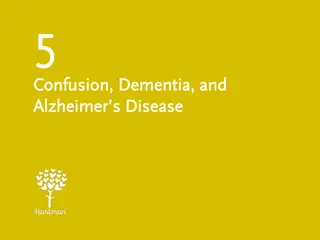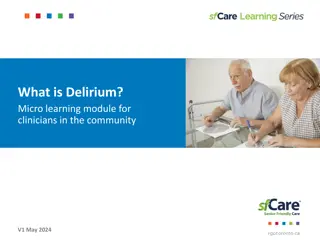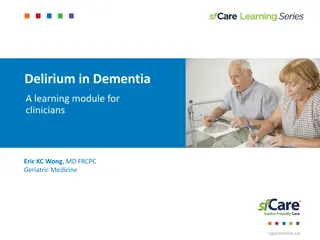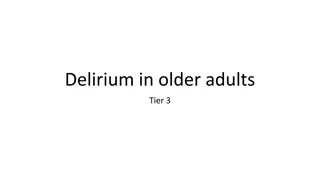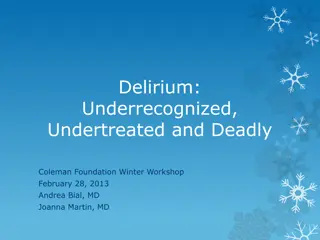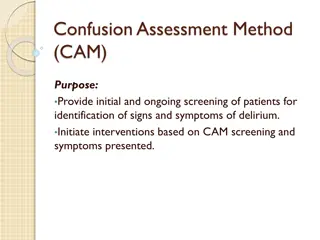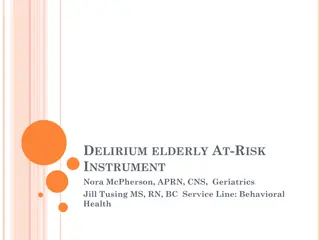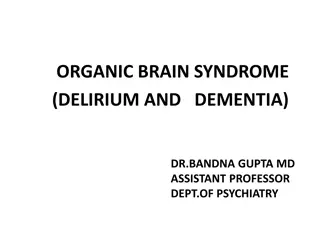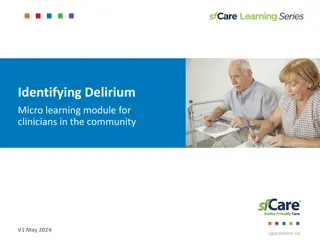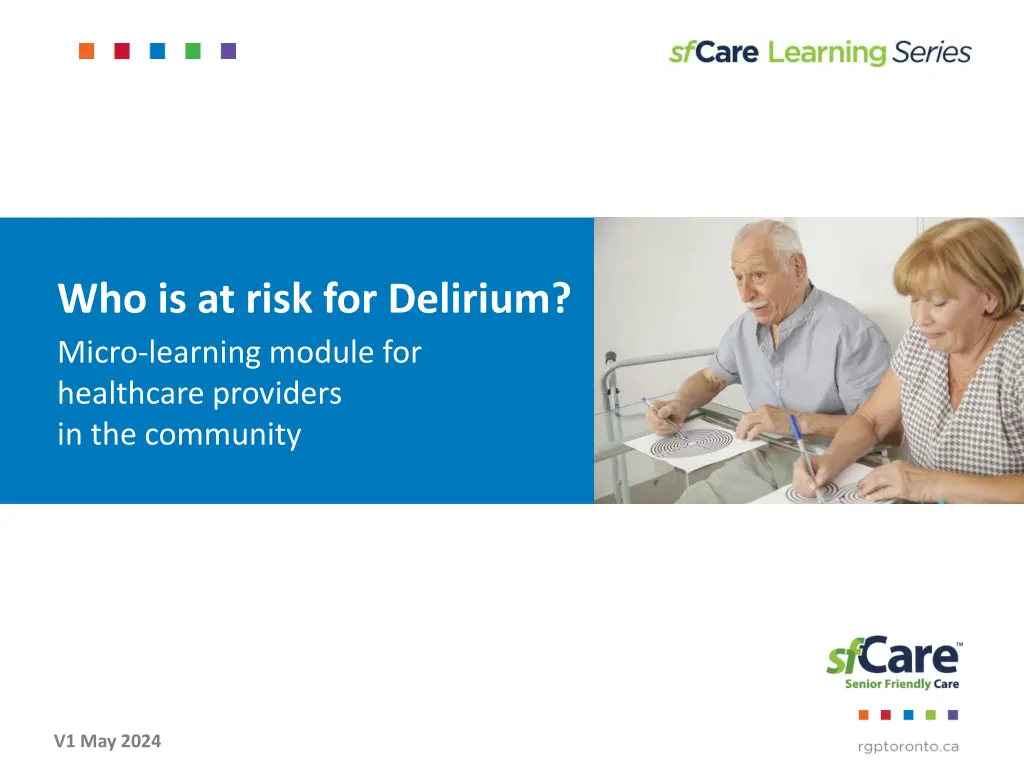
Understanding Delirium Risk Factors and Support for Older Adults
Explore the common risk factors for delirium in older adults, including infections, dementia, medications, and dehydration. Learn how to support individuals like Bert, who face an increased risk of delirium due to age, health conditions, and recent hospitalization. Discover practical tips to identify symptoms, review medications, and provide essential care to prevent delirium in vulnerable populations.
Download Presentation

Please find below an Image/Link to download the presentation.
The content on the website is provided AS IS for your information and personal use only. It may not be sold, licensed, or shared on other websites without obtaining consent from the author. If you encounter any issues during the download, it is possible that the publisher has removed the file from their server.
You are allowed to download the files provided on this website for personal or commercial use, subject to the condition that they are used lawfully. All files are the property of their respective owners.
The content on the website is provided AS IS for your information and personal use only. It may not be sold, licensed, or shared on other websites without obtaining consent from the author.
E N D
Presentation Transcript
Who is at risk for Delirium? Micro-learning module for healthcare providers in the community V1 May 2024
The most common risk factors for delirium in the community Personal risks 4 Most Common Causes Infections Older age, especially over 85 Dementia Medications Previous delirium Electrolytes Recently hospitalized Dehydration 2
What you can do for older adults at risk of delirium Report symptoms of delirium Medication review Support basic needs: 3
Case Discussion Bert is 85 years old and has mild dementia and depression. He enjoys watching TV and listening to polka music at home. He was recently hospitalized for a prostate procedure and was unable to recognize his husband for a period of time after the procedure. He walks independently, with a walker. He is experiencing occasional bouts of constipation. What puts Bert at an increased risk of developing delirium? What can you do to support Bert? 4
Case Discussion: Answer Key Bert s Risks Bert is 85 years old and has mild dementia and depression. He enjoys watching TV and listening to polka music at home. He was recently hospitalized for a prostate procedure and was unable to recognize his husband for a period of time after the procedure. He walks independently, with a walker. He is experiencing occasional bouts of constipation. 5
Case Discussion: Answer Key Support Bert Be alert for and report symptoms Medication review Support basic needs o Drinking enough o Eating well o Using his glasses o Staying active walking using his walker o Keeping his mind active by encouraging him to do things he enjoys like watching TV and listening to polka music o Controlling pain o Regular toileting o Sleeping well 6





